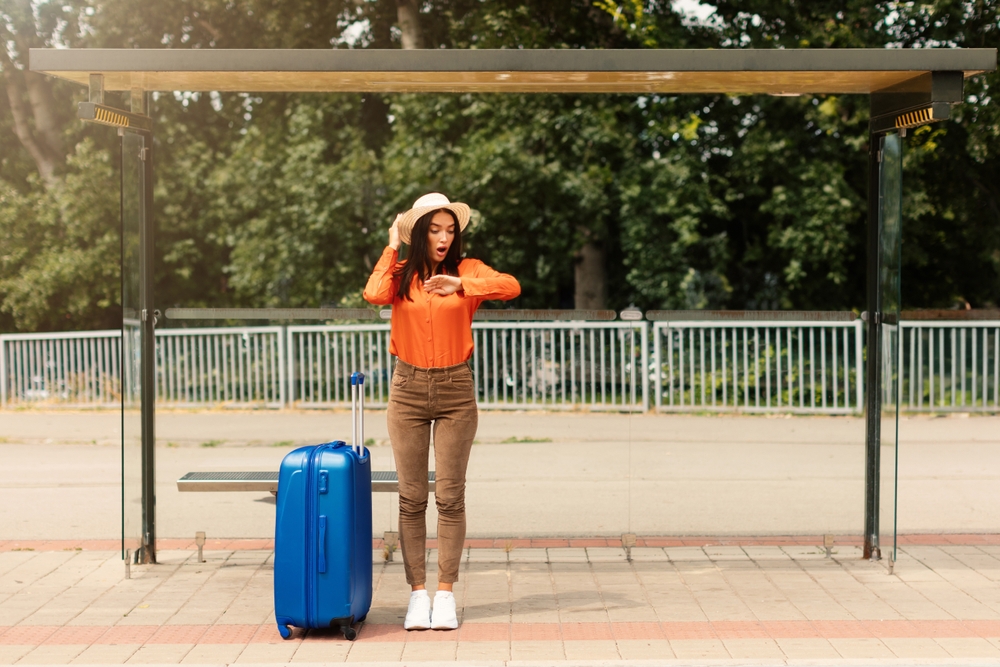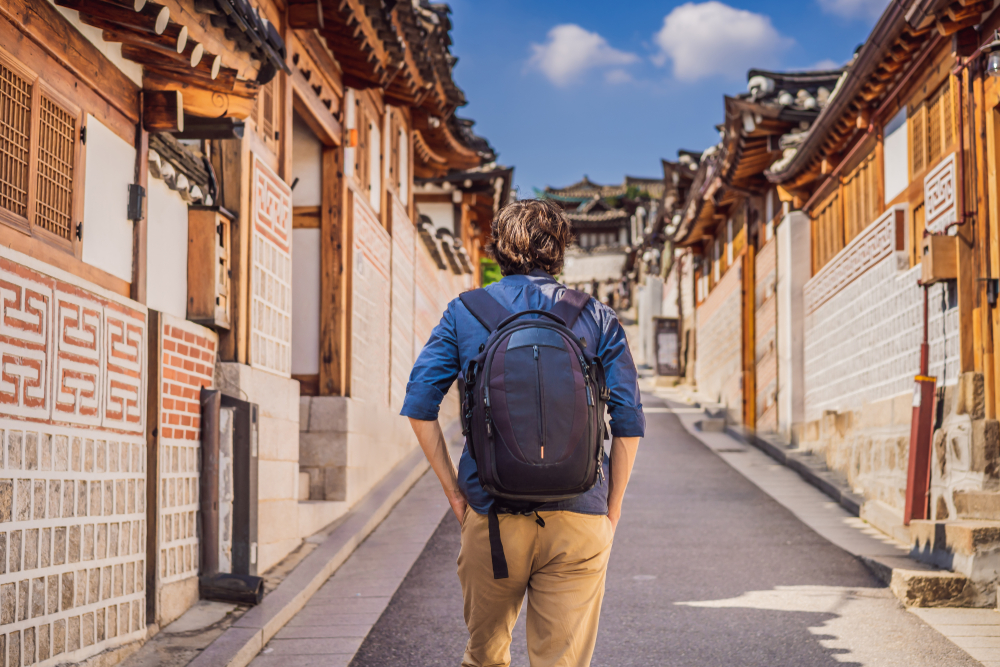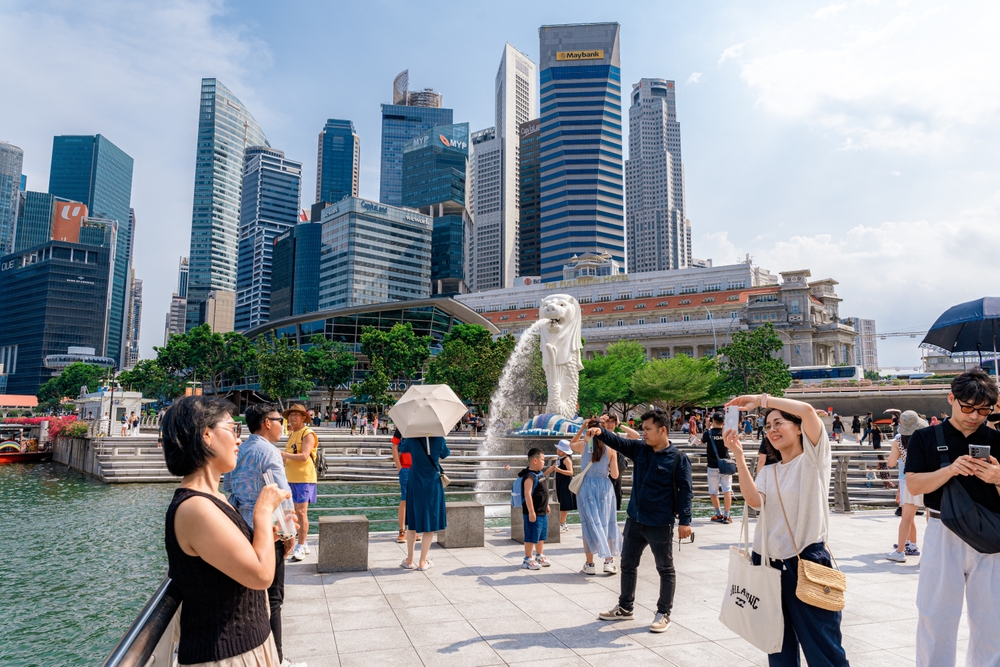Travel isn’t just about seeing new places—it forces you to face who you really are, whether you’re ready for it or not.

Travel has a way of peeling back the layers of who we think we are and exposing the truth underneath. When you leave the comfort of your daily routine, step into unfamiliar surroundings, and face the unexpected, you can’t hide behind the usual distractions. There’s no autopilot, no comfort zone, no predictable script to follow.
You might think you know yourself, but wait until you get lost in a foreign city, have to navigate an unfamiliar culture, or face an unexpected challenge miles away from home.
Travel doesn’t just broaden your horizons—it forces you to confront parts of yourself you never noticed before. If you’ve ever wondered how travel shapes a person at their core, read on to learn what it can do for you.
1. You find out how adaptable you really are.

When you’re traveling, nothing ever goes exactly as planned. Flights get delayed, reservations get lost, and sometimes, the place you were dying to visit turns out to be a total disappointment. If you’re someone who thrives on routine and predictability, these moments can be frustrating—or they can show you just how flexible you really are.
Some people panic at the first sign of trouble, while others roll with the punches and make the best of it. You quickly learn whether you’re someone who can embrace change or someone who struggles to let go of control, according to Dr. Ravi Gill, Health Psychologist, interviewed for an article in the Travel Psychologist.
Travel forces you to either adapt or be miserable, and that lesson sticks with you long after you return home. If you can find humor in the unexpected or stay calm in the chaos, you’ve learned one of the most valuable skills in life. But if every inconvenience sends you into a spiral, travel will reveal just how much work you have to do on handling uncertainty.
2. Your real personality shows when things go wrong.

Anyone can be easygoing when everything is going smoothly. But what about when you’re stuck at an airport for eight hours, your luggage gets lost, or your phone dies in an unfamiliar city? That’s when your true nature comes out. Do you snap at the airline staff? Do you let frustration ruin your mood? Or do you take a deep breath and find a way forward?
Travel exposes whether you’re patient, resilient, or prone to meltdowns, suggests David Levine for U.S. News and World Report. It’s easy to put on a “best self” act in everyday life, but when travel throws challenges your way, there’s nowhere to hide. Some people discover they’re surprisingly good at staying level-headed under pressure, while others realize they have a short fuse. Either way, those moments of frustration can teach you more about yourself than any self-help book ever could.
3. Your fears and insecurities rise to the surface.

When you’re far from home, your usual comforts and safety nets disappear. Suddenly, the little things that don’t faze you in your normal life can feel overwhelming. Fear of getting lost, struggling with a new language, or just being in an unfamiliar place can bring up anxieties you didn’t even know you had. It forces you to ask: How do I handle discomfort? Do I push through my fears, or do I let them hold me back?
Travel anxiety is real, and it can highlight insecurities you’ve ignored for years, reminds Nancy Monson, writing for Next Avenue. But it also gives you a chance to confront and overcome them. If you avoid certain situations because they make you uncomfortable, travel will make that painfully obvious. But if you learn to navigate uncertainty, you’ll come back home feeling braver and more capable than ever before.
4. You realize how much (or how little) you need to be happy.

At home, it’s easy to get caught up in material things—bigger houses, better clothes, the latest gadgets. But when you’re living out of a suitcase, you quickly realize what actually matters, and this is one of the lessons Elizabeth Gorga has learned from her travels that she shares on Go Abroad. Do you need all the stuff you’ve accumulated, or can you be just as happy with the basics? Travel strips away the excess and forces you to focus on experiences, people, and the moment you’re in. Some people find this freeing, while others struggle without their usual comforts.
Either way, it reveals what truly makes you happy—and what doesn’t. You might discover that simplicity brings more joy than possessions ever could. Or, you might realize that without your favorite comforts, you feel lost—exposing just how dependent you are on external things for happiness.
5. Your true social tendencies become obvious.

Are you naturally social, or do you only engage with people because you have to? Travel makes that crystal clear. Some people find themselves thriving in new environments, striking up conversations with strangers, and making new friends effortlessly. Others realize that socializing in unfamiliar places feels exhausting and would rather spend their time alone. Travel strips away the social expectations of everyday life and forces you to interact with people on your own terms.
Whether you discover you’re more introverted or extroverted than you thought, it’s an eye-opening experience. If you naturally seek out human connection, you’ll find yourself drawn to others no matter where you go. But if the idea of small talk with strangers sounds like torture, you’ll likely stick to solo experiences—revealing what truly energizes or drains you.
6. You learn how much control you actually have over your emotions.

Travel doesn’t just test your patience—it tests your ability to manage frustration, stress, and even joy. If your plans fall apart or something doesn’t go as expected, do you let it ruin your whole trip? Or can you take a step back, adjust, and move forward? Being in unfamiliar situations exposes how well (or how poorly) you handle your emotions.
You might realize you’re more adaptable than you thought, or you might see just how much work you have to do in keeping your cool under pressure. Travel forces you to either gain emotional resilience or spend the entire trip stressed out. If you learn to go with the flow, you’ll return home with a newfound sense of emotional strength. But if you find yourself constantly overwhelmed, you’ll see just how much you let external circumstances dictate your mood.
7. You find out if you can handle being alone.

Solo travel, in particular, reveals how comfortable you are with yourself. Without the constant presence of friends, family, or work obligations, you’re left with your own thoughts, choices, and company. Some people thrive in this freedom, while others feel lost without someone to share experiences with. Travel forces you to be independent, make decisions, and rely on yourself in ways everyday life doesn’t always require. It’s a powerful way to see how much you truly enjoy your own company.
If you can embrace solitude and still have fun, you’ll gain confidence in your ability to navigate life on your own. But if being alone makes you anxious or restless, it may reveal a deeper reliance on external validation for happiness.
8. Your ability to handle uncertainty is tested.

At home, routines create a sense of control. Travel, on the other hand, is filled with unpredictability. Will your train show up on time? Will the restaurant you planned on be closed? Will you end up somewhere completely different than expected? The way you handle the unknown says a lot about you. Some people thrive in uncertainty, seeing it as an adventure. Others find it stressful and exhausting.
Travel makes you confront your relationship with the unpredictable and teaches you how to navigate it—whether you like it or not. If you can embrace the unknown with excitement, you’ll return home feeling more fearless than ever. But if every change in plans leaves you anxious, travel will expose just how much you rely on control for peace of mind.
9. Your level of privilege becomes painfully clear.

If you’ve never left your comfort zone, it’s easy to take what you have for granted. Traveling to different parts of the world—especially places with economic struggles—shines a light on privilege in ways that books and news reports never can. You suddenly realize how much you rely on basic things like clean water, reliable transportation, or even personal safety.
This awareness can be uncomfortable, but it’s also an opportunity to see the world, and yourself, through a more compassionate and informed lens. Travel can open your eyes to the realities that many people face every day, making you more grateful for what you have. And if you truly let that lesson sink in, it can change the way you live your life long after your trip is over.
10. You discover whether you actually like adventure or just like the idea of it.

It’s easy to romanticize travel, picturing yourself hiking through jungles, eating exotic foods, or wandering through ancient ruins. But when the moment actually comes, do you embrace the adventure—or do you realize you’d rather be somewhere familiar and comfortable? Some people dream of spontaneous trips, but once they’re in the middle of an unfamiliar place, they realize it’s more stressful than exciting. Travel forces you to confront whether you truly enjoy stepping into the unknown or if you just like the idea of it.
If you thrive on adventure, you’ll seek out every new experience with excitement. But if unfamiliar situations leave you longing for home, travel will reveal that comfort matters more to you than risk-taking.
11. You see who you really are when no one is watching.

At home, your identity is shaped by routine, social expectations, and the people around you. But when you’re in a new place, none of that applies. Nobody knows your history, your habits, or the role you play in your everyday life. This freedom can be eye-opening. Do you take risks? Do you reinvent yourself? Do you fall into the same patterns? Travel removes the labels and expectations, leaving only the rawest version of yourself. You’re free to be whoever you truly are—without the influence of coworkers, family, or friends shaping your choices.
Some people find this liberating, discovering sides of themselves they never knew existed. Others realize they don’t know who they are without external validation. However you respond, travel forces you to meet yourself—without the filters, without the performance, and without the comfort of familiarity.
